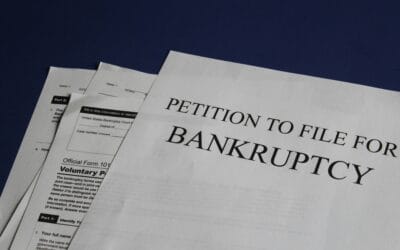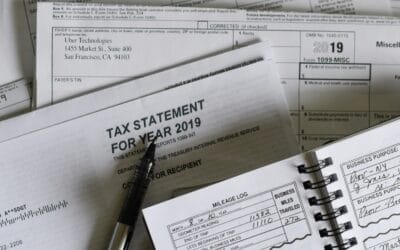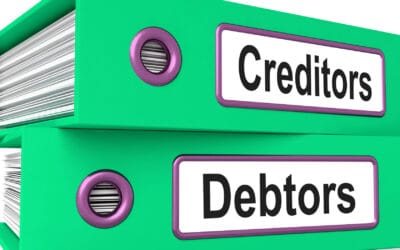Client Testimonial – How Bankruptcy Helped Me Start Over
Finding Hope When Debt Feels Overwhelming
Meet John, a 42-year-old Washington, Pennsylvania resident whose journey from crushing debt to financial freedom proves that even in your darkest financial hour, there is hope. His story represents thousands of hardworking Americans who found themselves drowning in debt through no fault of their own—and discovered that Chapter 7 bankruptcy offered the fresh start they desperately needed.
John’s experience is a powerful reminder that you’re not alone in your financial struggles, and more importantly, that there is a legal, effective way out of seemingly impossible situations.
When Financial Stability Crumbles
John’s troubles didn’t happen overnight. For years, he had been managing his finances responsibly, maintaining steady employment at a local manufacturing plant and keeping his credit card balances manageable. However, the COVID-19 pandemic changed everything in ways he never anticipated.
“I thought I was doing everything right,” John reflects. “I had a steady job, paid my bills on time, and even had a small emergency fund. But when the pandemic hit, everything fell apart so quickly.”
The cascade began when John’s employer implemented massive layoffs in April 2020. Despite fifteen years of service, John found himself among hundreds of employees suddenly without income. While unemployment benefits provided some relief, they covered less than half his previous salary.
As months passed without finding comparable employment, John was forced to rely increasingly on credit cards for basic living expenses. Medical issues related to stress and delayed healthcare compounded the problem. By the time John found new employment eight months later, he had accumulated nearly $45,000 in combined credit card and medical debt.
The Crushing Reality of Minimum Payments
The psychological impact of John’s debt burden affected every aspect of his daily life. What began as a financial problem quickly became an all-consuming crisis.
“I felt completely trapped,” John explains. “Every single paycheck was going straight to minimum payments on credit cards and medical bills. I was paying hundreds of dollars every month just to keep my head barely above water, but the balances never seemed to go down.”
With interest rates averaging 22% on his credit cards, John was essentially treading water financially. Each month, he would make payments totaling nearly $1,200, but only a fraction actually reduced his principal balances.
The constant stress took a severe toll on John’s health. Sleep became elusive as he calculated numbers that never seemed to add up to a solution. Daily calls from collection agencies created anxiety that followed him everywhere.
“I couldn’t even afford groceries without putting them on a credit card,” John recalls. “I was using credit cards to pay other credit cards. I knew I was digging myself deeper, but I didn’t see any other choice.”
Taking the First Step: Professional Help
The turning point came when a coworker mentioned that her brother had successfully filed for bankruptcy. Despite initial reservations, John began researching his options online.
“I had always thought bankruptcy was for people who were irresponsible,” John admits. “I was embarrassed to even consider it, but I was running out of options. The more I read, the more I realized that bankruptcy laws exist to help honest people in impossible situations.”
After weeks of internal debate, John contacted a local bankruptcy attorney. The initial consultation proved both enlightening and reassuring.
“From the moment I walked into the attorney’s office, I felt like someone finally understood what I was going through,” John remembers. “The lawyer didn’t judge me. Instead, he explained that my situation was actually quite common and that bankruptcy laws were designed to help people like me get a fresh start.”
Understanding the Chapter 7 Process
John’s attorney conducted a thorough review of his financial situation and determined he was an ideal candidate for Chapter 7 bankruptcy. The attorney explained that Chapter 7 would allow John to discharge most of his unsecured debts while protecting his essential assets under Pennsylvania’s generous exemption laws.
“My lawyer explained that Chapter 7 was like hitting a reset button on my financial life,” John explains. “Most of my credit card and medical debt would be completely wiped out, and I could keep everything I needed—my home and car.”
The attorney outlined the timeline, explaining that most Chapter 7 cases complete within four to six months. He addressed John’s credit concerns, explaining that while bankruptcy would initially lower his credit rating, eliminating overwhelming debt would actually accelerate his path to financial recovery.
Most importantly, the attorney explained the automatic stay provision, which would immediately stop all collection calls upon filing. This provided John with the first real relief he had felt in months.
The Filing and Legal Process
With professional guidance, John gathered the required documentation and filed his bankruptcy petition. Within hours, the automatic stay went into effect, immediately stopping all collection calls.
“The silence was incredible,” John remembers. “For the first time in over a year, my phone wasn’t ringing constantly. I could finally think clearly about my future instead of constantly worrying.”
Five weeks later, John attended the required Meeting of Creditors. His attorney prepared him thoroughly, and the process took less than ten minutes. The trustee asked routine questions about his financial situation, and no creditors appeared at the meeting.
Life After Discharge: The Transformation
Six months after filing, John received his discharge order. This legal document officially eliminated his obligation to pay the discharged debts and prohibited future collection attempts.
“When I got that discharge paper, I actually cried,” John admits. “It felt like I had been carrying a 200-pound weight for years, and suddenly it was gone.”
The financial impact was immediate and dramatic. John’s monthly debt payments dropped from nearly $1,200 to less than $200. This sudden increase in available income allowed him to rebuild his emergency fund and plan for his financial future.
Beyond financial relief, John experienced profound improvements in his mental and physical health. The constant stress began to fade, replaced by hope and possibility.
“I started sleeping through the night again,” John reports. “I could focus at work without constantly worrying about money. I even started socializing with friends again.”
Rebuilding Credit Successfully
Contrary to popular misconceptions, John’s bankruptcy didn’t prevent credit rebuilding. Three months after discharge, he obtained a secured credit card and began establishing positive payment history.
“My attorney explained that rebuilding credit after bankruptcy is actually easier than most people think,” John notes. “Since I no longer had any debt, I could focus on building positive credit history.”
Within eighteen months, John’s credit score improved significantly. He qualified for a conventional auto loan at a reasonable rate and established financial habits that protect him from future debt problems.
Protecting What Matters Most
One of John’s biggest concerns had been losing his home and vehicle. However, Pennsylvania’s exemption laws allowed him to protect these essential assets throughout the process.
“I was amazed that I could keep my house and my car,” John reflects. “The exemption laws ensure that people can maintain their basic living situation while getting debt relief.”
Lessons and Looking Forward
John’s experience taught him valuable lessons about personal finance and the importance of seeking professional help when facing overwhelming challenges.
“I learned that there’s no shame in asking for help,” John reflects. “I wasted months trying to handle everything myself when a simple phone call could have solved my problems much sooner.”
Three years after discharge, John has built a stable financial foundation. His emergency fund contains six months of expenses, his credit score has recovered, and he’s developed sustainable financial habits.
“I’m in better financial shape now than before my debt problems started,” John reports with pride. “The bankruptcy gave me a chance to start over, but the habits I developed have kept me on track.”
A Message of Hope
John’s story concludes with an important message for anyone facing similar challenges.
“I wish I had contacted a bankruptcy attorney much sooner,” John emphasizes. “I spent months suffering unnecessarily because I was too proud to ask for help. If my story can encourage even one person to seek help sooner, then sharing it was worthwhile.”
His advice is simple but profound: “Don’t wait until you’ve exhausted every other option. Talk to a bankruptcy attorney early. You might be surprised by how many options you have and how much better you’ll feel once you understand your rights.”
Conclusion: Your Fresh Start Awaits
John’s journey from overwhelming debt to financial stability demonstrates the transformative power of Chapter 7 bankruptcy when properly utilized with professional guidance. His success included recognizing he needed help, seeking qualified legal representation, and implementing sustainable financial habits after discharge.
If you’re currently facing overwhelming debt, constant collection calls, or crushing financial anxiety, remember that you’re not alone. Like John, you may be just a phone call away from beginning your own journey toward a genuine fresh start.
John’s final words carry particular weight: “I finally feel like I can breathe again. If you’re struggling like I was, please don’t suffer in silence. Help is available, and your situation can improve. I’m living proof that there really is light at the end of the tunnel.”
Take that first step today. Your fresh start may be closer than you think.











